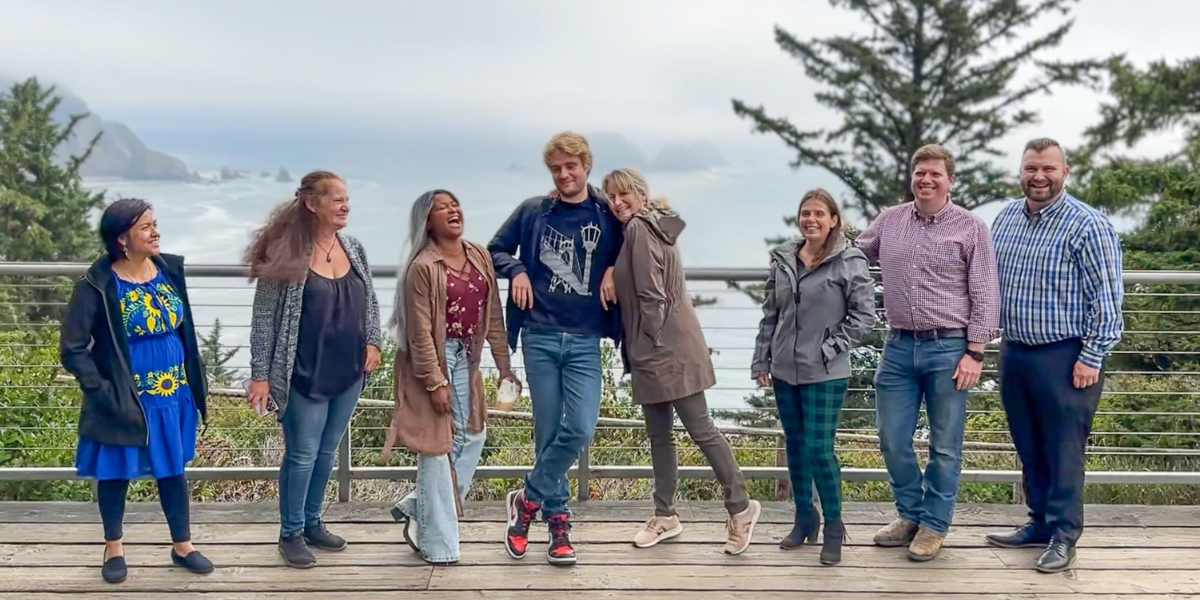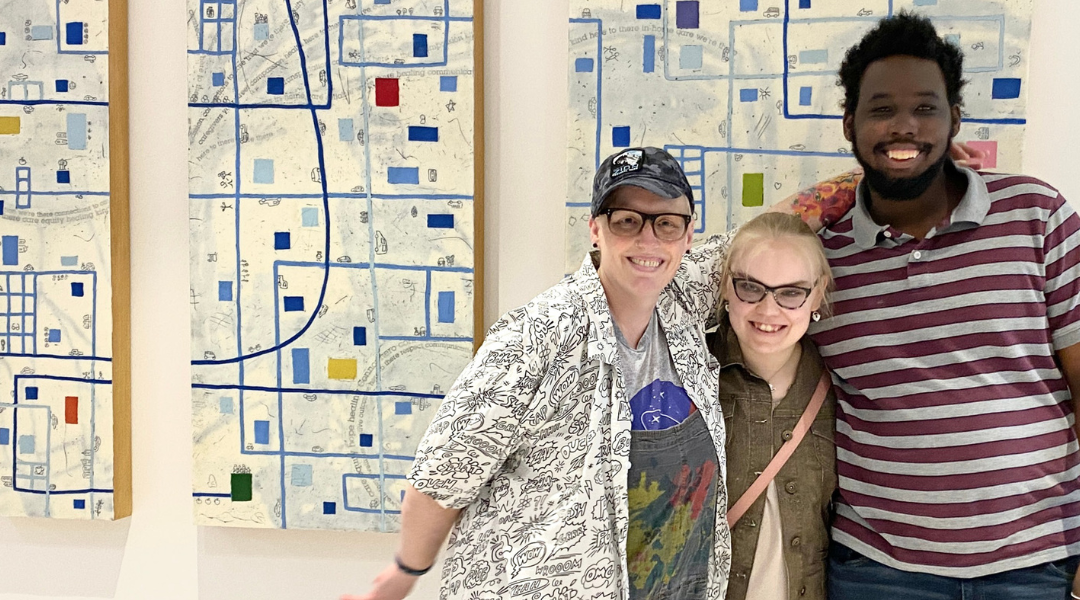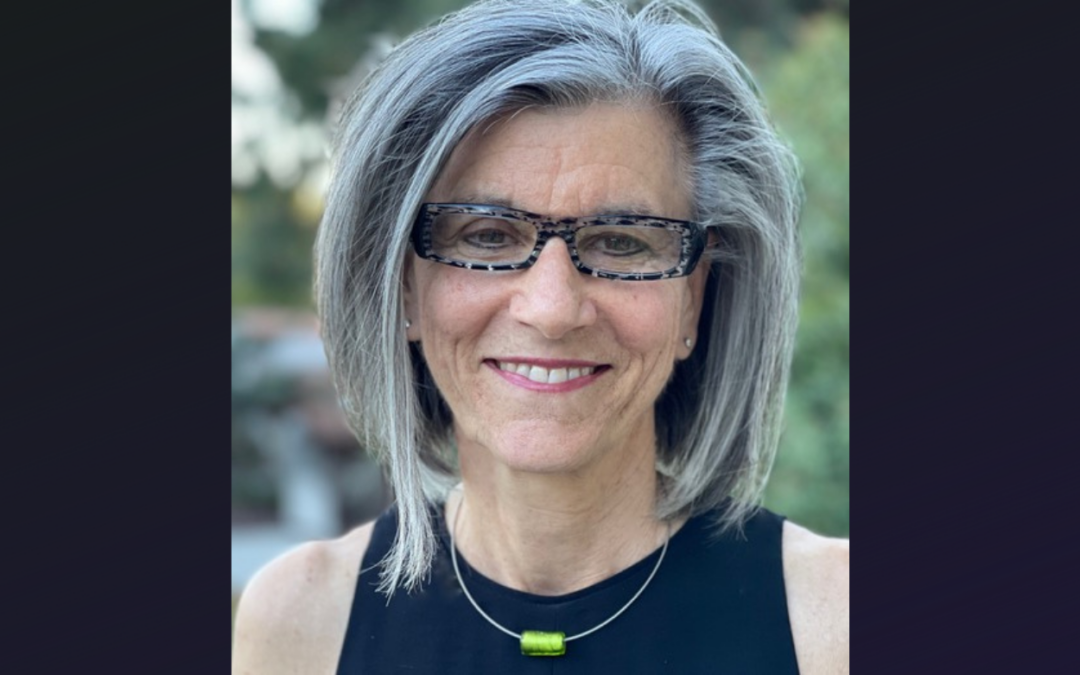
“The Tillamook Cowpies” team tries to pose for a serious photo, but fails because they have too much fun whenever they are together making plans to bring wellness to their community.
Maree Beers is the co-director of Empowering Tillamook Country through Financial Wellness, a program of Urban Rural Action, and one of 10 awardees of the CoGen Challenge to Advance Economic Opportunity. Watch for interviews with all 10 of these innovators bringing older and younger people together to open doors to economic opportunity for all ages.
What is Empowering Tillamook County through Financial Wellness and what life events brought you to do this work?
We bring free, financial literacy to the Tillamook County community, which is a rural area in northeastern Oregon. We’re a collaboration between three organizations: Urban Rural Action, Tillamook County Wellness, and Financial Beginnings. We serve kindergarteners through seniors – especially those who are vulnerable, underserved or experiencing hardship.
I started my career in banking and mortgage lending and got to see firsthand the barriers that arise from not understanding personal finance. I realized I wanted to focus on financial education. I grew up in rural Oregon and know how to make this project successful through community partnerships – connecting with and plugging into existing networks is key.
What problem are you trying to solve?
Financial wellness leads to whole-person wellness. A major benefit is stress reduction, but it’s also about being able to access quality healthcare, healthy food options, fitness and recreation, and improve your living environment. We believe that financial literacy is something all people deserve to have access to so they have even more tools and resources to be well.
How do youngers and olders solve the problem together?
We have an age-diverse group of volunteers that teach financial literacy to the people involved with our program. We pair older volunteers with our youth participants, and younger volunteers with our more senior populations. We’re also developing a plan to train our volunteers to go into classrooms as cogenerational pairs, offering the financial education content from differing perspectives and lived experiences.
What unique perspectives or strengths do younger and older individuals bring to the table, and how are they complementary?
All participants have a chance to learn by connecting across generations. Older volunteers share personal stories to help younger people understand the importance of budgeting, saving and investing. This includes sharing successes as well as hard lessons they’ve learned, which roots the lessons in real-world examples.
Younger volunteers often help older people struggling with poverty, substance abuse, domestic violence and trauma by showing them how to overcome barriers to financial opportunities, like having to find time to get to the bank. It’s much easier to use the technology available today to access one’s finances. Our younger volunteers are able to demonstrate and help ease skepticism and concerns about tech use to help the older people become more financially empowered.
Why do you believe that bringing generations together is important for the work you’re doing? Can you give us an example of the impact?
One of our programs is connected with the local alternative high school, which is part of Oregon Youth Authority (our state juvenile detention system). These youth told us they feel like financial success isn’t attainable for them because being financially stable (or even wealthy) isn’t for people who are poor or make mistakes.
Our rockstar volunteer, a retired disabled veteran, shared about his troubled youth, which led him to choose the military since that was presented to him as his only option to get his life on track. He shared about how even when he got out of the Army, there were hard financial lessons he had to learn. He also shared how it felt the first time he was able to save and purchase his first piece of equipment for his excavating business and what it was like to finally buy a house. It was inspiring for the kids to hear about someone like them who was a success. He was able to teach through example that “being rich” isn’t the end goal, but that being responsible creates stability and aided in his overall mental health and wellness.
It’s one thing to have a curriculum tell someone “anything is possible.” It is entirely another to have a volunteer bring those lessons to life through their lived experience.
Have you encountered any unexpected positive or negative outcomes in bringing your project to life? Any ripple effects from your work?
Our program has had tremendous success at least in part because we were able to offer classes in Spanish. We’ve also been thrilled to see that some of the organizations we partner with have chapters in other cities and counties, and they are bringing our financial literacy curriculum to their participants.
What would you advise someone who is looking to cogenerate?
Find out where cogeneration already exists in the work you are doing and then intentionally focus on it as a way to strengthen your program.
Favorite way to wind down and relax?
I love putting a record on and doing needle crafts (knitting, crochet, cross stitch etc). I have a large collection of vinyl records including a lot of classic artists, like original Beatles albums, Fleetwood Mac, Led Zeppelin, as well as many current artists. Doing needlework is my therapy. It engages my mind and (usually) results in a piece of art being created.





